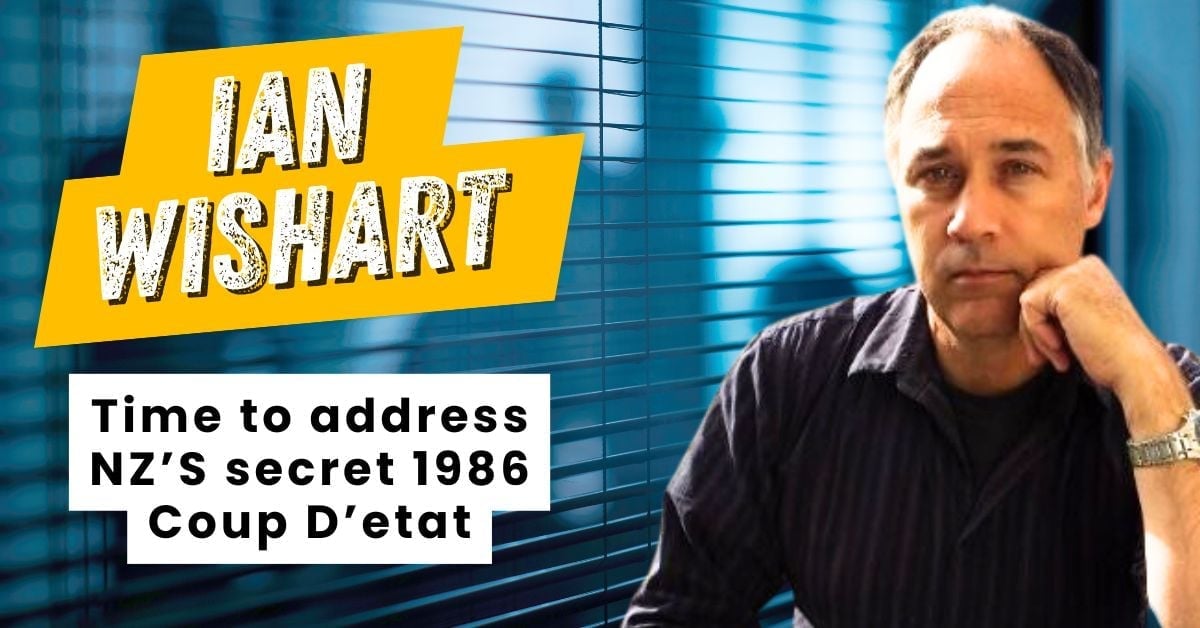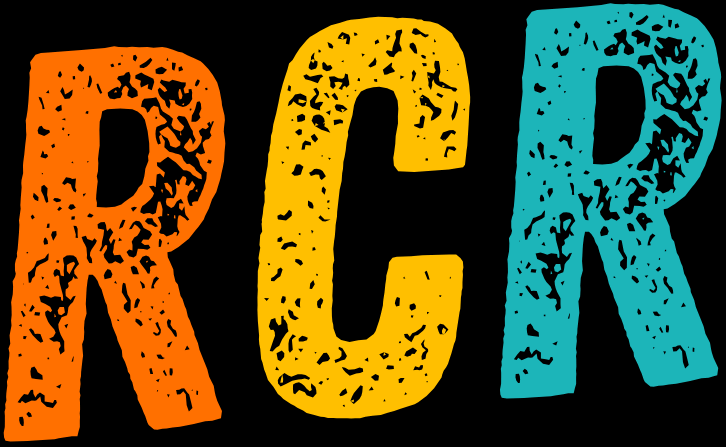
By Ian Wishart
Former High Court judge Robert Fisher, now a KC, argues in the NZ Herald that New Zealand is already a republic in all but name, and that Parliament could lock it in with a couple of legislative tweaks.
However, despite making a prima facie good case for his argument, there’s a massive elephant in the room that Fisher doesn’t address – and possibly doesn’t even know about: the secret NZ constitutional coup of 1986. It has given us an arguably illegal parliament for 36 years.
Let me explain.
Fisher KC makes the point: “A republic has been defined as ‘a state in which supreme power is held by the people and their elected representatives, and which has an elected or nominated president rather than a monarch’. In New Zealand supreme power is held by the people and their elected representatives.”
The last sentence in Fisher’s argument is commonly accepted in the legal fraternity and judiciary, but few have actually ever tried to join the dots to see if it’s true. I have, and it isn’t.
Aotearoa New Zealand began its constitutional journey in the 1800s as a colony of Great Britain. The colonial parliament in Wellington was the branch of a constitutional oak tree with its trunk and roots in London. Other branches off that same tree trunk were the colonial parliaments of Australia, Canada and various smaller territories around the world. All of them, without exception, drew their authority to govern locally in Wellington, Canberra or Ottawa from laws drafted and enacted by the UK Parliament at Westminster, delegating local governance to the colonial parliaments.
Over the past 180 years, New Zealand’s parliament (and Australia’s and Canada’s) have been granted increasingly wider powers by London. By the time the League of Nations was formed after WW1, NZ was acting as a sovereign state in its own right, but the trunk was still attached to the London tree: our parliament was still drawing its constitutional authority to govern NZ from the English crown and UK Acts of Parliament. By law, New Zealanders were “subjects”, not “citizens”.
The politicians in Wellington may have been “elected” by the NZ people, but they were elected only as “representatives” to a system set up by London and accountable directly to the Crown, not the people. Voters could change the faces, but they couldn’t change the system itself.
Fast-forward to one night in 1986.
The radically reformative Labour Government of Lange, Palmer, Moore and Douglas (I was Mike Moore’s press secretary at the time) hatched a plan so cunning you could, in the words of Edmund Blackadder, stick a tail on it and call it a weasel.
The plan was simple: declare legal independence from Great Britain, and turn the New Zealand parliament into the Crown itself by seizing all the power and authority from Westminster and enthroning a “Queen of New Zealand”.
They did this through the Constitution Act of 1986 and the Imperial Laws Application Act of 1988.
There was only one problem with this cunning plan: it was, and remains to this day, technically illegal and unconstitutional.
Here’s why.
When countries declare independence, there must be an absolute break in the consitutional authority. New Zealand MPs on the day before the Constitution Act was passed were still a branch of the London tree. Yet the day after they declared independence and cut their branch loose from the UK trunk, the New Zealand Parliament branch was miraculously still suspended in mid-air – but on whose authority did those MPs now govern? `
In Ireland in the 1930s, the Dail (parliament) declared independence from England, but it had to be ratified by a public vote. In this manner, the Irish parliament swiftly found fresh constitutional authority for its existence and powers – from the Irish people. It’s a legal process known as ‘autocthony’, which loosely translates to finding a new constitutional source of power once you unplug yourself from the original power source.
This never happened in New Zealand in 1986. The local NZ media did not understand the implications of the Constitution Act, and the Lange government never told them. The public awoke the morning after, not realising New Zealand’s parliament had just seized absolute power and enthroned itself as “the Crown”. It never went to a public vote.
It was the ultimate smoky backroom deal, a quiet revolution. A very kiwi coup.
And ever since 1986, ruling politicians have done whatever they liked.
Remember what Robert Fisher KC said? “In New Zealand supreme power is held by the people and their elected representatives.”
No, supreme power is not held by the New Zealand people. We are still “subjects” – now of a parliamentary monarchy in Wellington rather than Charles III in London. That individual only remains the nominated face of the kingdom in Wellington at their invitation.
Had Fisher KC been talking of Ireland he would have been correct – sovereignty was accepted by the Irish people in a vote in 1937 and power then delegated to the Irish Dail.
But again, that never happened in NZ. Our parliament has governed as supreme sovereign itself for 36 years and never sought ratification for that coup from the people.
Whatever path New Zealand chooses, whether a continuation of constitutional monarchy or republic, we have to legally clean up the aftermath of the 1986 Coup d’Etat. The UK Government had no authority to actually transfer the Crown to the NZ Parliament, because at the midnight moment of passing the Crown to Wellington its power to do so (an act of colonialism) ceased to exist like Cinderella’s coach. Likewise, Lange and Palmer had no legal ability to accept the Crown in 1986 – they had to get ratification from the people first. They never did so. Australia and Canada are in the same boat.
It’s time to face the elephant in the room, and merely changing a few words in legislation won’t cut it. We are not a republic in all but name, as Fisher asserts. Instead our plight is arguably more serious: we are an illegal, unconstitutional monarchy where Parliament in Wellington took supreme power for itself in 1986, and that power has intoxicated politicians ever since. Former Appeal Court President Sir Robin Cooke once famously opined that if Wellington ordered the deaths of all blue-eyed babies the courts would have to uphold it and the military enforce it.
The emperor has no clothes.
Ian Wishart is the author of Absolute Power and founded The Constitution Trust in 2000 to push the case for a written constitution in NZ
Originally published on OutdoorPhoneStore.
